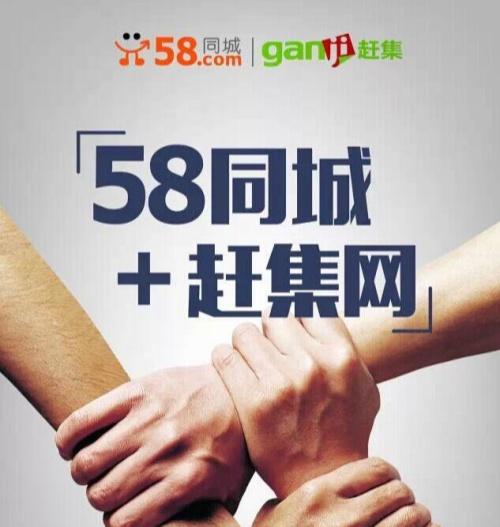A Decade After Major Internet Mergers and Acquisitions: Who's Thriving and Who's Struggling?
![]() 04/24 2025
04/24 2025
![]() 572
572

Recently, JD.com and Meituan have been locked in a fierce battle for supremacy in the food delivery market, with frequent clashes at both the business and public relations fronts. This has revitalized the once-quiet internet industry, bringing back the fierce competition that had been absent for some time. Many have exclaimed: This is what the internet industry should look like. Have you noticed that these two companies share a striking similarity: both are resilient players who have weathered numerous intense battles.
Moreover, there's another detail about JD.com and Meituan that often goes unnoticed: both have undergone mergers and acquisitions during their growth journey. Among them, Dada Nexus, serving as the transportation backbone of JD.com's food delivery service, was the first to receive investment from JD.com and reach a strategic cooperation agreement. It later underwent shareholding and privatization processes, ultimately being fully acquired by JD.com, becoming a pivotal asset in JD.com's aggressive push into the food delivery market.
Meituan's most notable merger and acquisition case occurred in early October 2015, when it merged with Dianping under the auspices of common shareholders such as Sequoia Capital, emerging as the biggest winner of that year's O2O wave. This was also the second time Alibaba and Tencent, the two industry giants, found themselves as significant shareholders in the same company, following the merger of Didi and Kuaidi. The proliferation of internet investments and mergers and acquisitions can be traced back to the tumultuous "3Q war".

In my observation, the eruption of the "3Q war" in November 2010 not only had a profound impact on the parties involved, 360 and Tencent, but also reshaped the entire internet ecosystem. Since then, open collaboration and mutual benefit have become industry norms, directly driving significant changes in the entrepreneurial landscape. In the past, when entrepreneurs faced Tencent's entry into their market, it was a matter of survival or extinction. Now, new avenues have emerged, such as cooperating with giants like Tencent or even being acquired, alongside vertical integration among peers.
Tencent's approach primarily involves strategic investments without causing disruption, with examples such as Sogou, JD.com, and 58.com. Alibaba, on the other hand, favors acquisition and control, with AutoNavi, Intime Department Store, and UC successively becoming part of its empire. Except for Tencent's strategic investment in Sogou in 2013, all other investment and merger and acquisition cases occurred in 2014. It's no exaggeration to say that 2014 was a pivotal year for giants scrambling to grab market share and lay out their ecological strategies, with capital games unfolding frequently.
By 2015, the internet industry had witnessed an unprecedented wave of mergers and acquisitions, primarily focused on "merging similar items" among entrepreneurs. Four significant mergers and acquisitions spanned the entire year: Didi and Kuaidi merged in February, 58.com and Ganji in April, Meituan and Dianping in early October, and Ctrip and Qunar at the end of October. Although giants were still involved in each case, BAT had already transitioned from protagonists to supporting roles, exerting influence more behind the scenes.
Indeed, whether it's BAT or investment institutions, they all play crucial roles. Initially, top players harvested smaller competitors through competition, jointly monopolizing the market. However, when only two players remained, excessive competition became a shackle, constraining profits. The powerful strategic capital behind them made it impossible for either side to defeat the other. At this juncture, merger became the only viable path forward. Thus, rational shareholders from both sides set aside their prejudices and jointly pushed for the merger to become a reality.
In fact, as competition intensifies, vertical integration among peers is not only a manifestation of the industry's full marketization but also a law of capital. Once bitter rivals who fought fiercely transform into a unified entity, the benefits are evident. On one hand, it "eliminates" competitors, positioning the merged entity as the industry leader, no longer needing to worry about fierce competition, at least in the short term. On the other hand, it bids farewell to money-burning expansion, fully integrating high-quality resources to promote the company's continued growth in a healthy and stable manner.
However, while merging similar items enjoys the natural benefits of a winner-take-all scenario, the drawbacks are also prominent. Two teams with different styles and once opposed to each other must now navigate the same business and run the same company, leading to inevitable conflicts and collisions. As the saying goes, "There can't be two tigers in the same mountain." For the long-term development of the company, it's imperative for one party to operate while the other exits. Therefore, despite the establishment of a co-CEO system at the beginning of these four mergers, it was merely an expedient measure and a temporary transitional arrangement. Eventually, one party's CEO and other management personnel would depart.
Sure enough, as time passed, Lv Chuanwei of Kuaidi, Yang Haoyong of Ganji, Zhang Tao of Dianping, and Zhuang Chenchao of Qunar all left the scene, while the merger leaders emerged victorious. Among them, Lv Chuanwei and Zhang Tao retreated from the frontline soon after, with Yang Haoyong being the latest to leave. In April 2015, 58.com and Ganji integrated to form 58.com Group, and he didn't step down as co-CEO until November, fully devoting himself to Guazi.com, a used car platform.

In December 2018, Yao Jinbo, the head of 58.com Group, bluntly stated that the co-CEO model doesn't work. He mentioned that 58.com had conducted several mergers and acquisitions in the past, such as merging with Ganji, and had hoped to establish a co-CEO model but found it ineffective. Later, Guazi.com was spun off, with 58.com Group becoming an early shareholder. "Often, both paths are correct, and it's wrong not to make a decision, and it's also wrong to hesitate and procrastinate."
Now, a full decade has passed in the blink of an eye. How have Didi, 58.com Group, Meituan, and Ctrip fared after their integrations and subsequent departures? Who is sailing smoothly with a smile, and who is struggling? Let me share some insights. Since Meituan and Ctrip are listed companies, their recent true conditions can be clearly discerned from their 2024 financial reports.
The financial report reveals that Meituan's revenue and net profit continued to rise in 2024. Specifically, revenue increased by 22% year-on-year to RMB 337.6 billion, and net profit surged by 158.4% year-on-year to RMB 35.8 billion. Ctrip's financial indicators also performed impressively, with net revenue reaching RMB 53.3 billion in 2024, an increase of 119% year-on-year, a new high since its listing, and net profit of RMB 17.2 billion, a year-on-year surge of 547%.
As for Didi and 58.com Group, they were delisted in June 2022 and September 2020, respectively, and have yet to initiate secondary listings. Since they are not listed companies, it's relatively challenging for the outside world to understand their performance, but that doesn't mean it's unknowable. There are always ways to uncover the truth.
Let's start with Didi. Despite being delisted for nearly three years, it still proactively discloses quarterly performance on its official website, akin to a listed company. The data shows that Didi achieved revenue of RMB 206.8 billion in 2024, with annual revenue exceeding RMB 200 billion for the first time, and adjusted EBITA (earnings before interest, taxes, and amortization) for the year reached RMB 4.327 billion, successfully turning losses into profits.

In contrast, 58.com Group, which does not disclose its performance externally (which is understandable), appears somewhat enigmatic, but its situation can still be inferred from the sidelines. Last July, Leju Finance obtained a set of financial data for 58.com for recent years (2019-2023) from an A-share listed company. The data shows that 58.com's revenue in 2023 was RMB 5.978 billion, a year-on-year decline of 13%, and its net profit was RMB 111 million, compared to RMB -696 million in the same period last year.
Although 58.com's 2024 financial report is not publicly available, based on their respective financial conditions and development trends, a basic conclusion can be drawn: Ten years after the merger, Meituan boasts the highest annual revenue, while 58.com Group lags behind; similarly, Meituan also records the highest annual net profit, with 58.com Group still at the bottom. This means that a decade after the major internet mergers and acquisitions, Meituan is thriving, with revenue and net profit far ahead, while 58.com Group is struggling and not on par with the other three companies. The disparity in their fortunes is truly striking!
Coincidentally, both Meituan and 58.com Group are deeply entrenched in local life services and have been favored by the two giants Tencent and Alibaba (which invested in Ehome). Yet, surprisingly, ten years later, one is thriving while the other is struggling. The disparity in their destinies is so vast that it's truly lamentable. Looking ahead to the next decade, will Meituan continue to maintain its leading edge, and will 58.com Group be able to catch up and narrow the gap? Only time will tell. What do you think?






